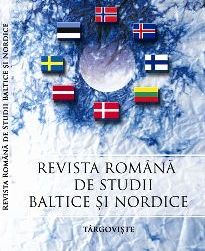Germany’s policy and the diplomatic agenda of Romanian neutrality (1914-1916). The Prospect of a plan for an alliance with Sweden
Germany’s policy and the diplomatic agenda of Romanian neutrality (1914-1916). The Prospect of a plan for an alliance with Sweden
Author(s): Claudiu-Lucian ToporSubject(s): History
Published by: Asociatia Romana pentru Studii Baltice si Nordice
Keywords: neutrality; alliance; diplomacy; Romania; Sweden; World War I
Summary/Abstract: In the summer of 1915, concerned about Italy's entry into the war in alliance with the Entente powers yet encouraged by the victories of its armies on the Eastern Front, the German diplomacy attempted to encourage Sweden and Romania to abandon their neutrality in order to give a decisive blow to Russia. In several reports dispatched from Berlin, Alexandru Beldiman, the envoy to Germany who was also Romania’s representative in the Scandinavian countries, raised the possibility of Sweden’s entry into the war on the German side. After he had identified Russia as the common historical enemy of the two countries, the Romanian diplomat suggested forging an alliance under the leadership of Germany. A strong alliance was thought to ensure Sweden’s ascendancy in Finland and the Baltic states, and Romania’s supremacy in the East at the Black Sea. Although this plan was rejected by the liberal government, Beldiman’s initiative in a period of neutrality remains an alternative in the Romanian political circles to Entente supremacy.
Journal: Revista Română de Studii Baltice şi Nordice
- Issue Year: 3/2011
- Issue No: 1
- Page Range: 131-144
- Page Count: 14
- Language: English

